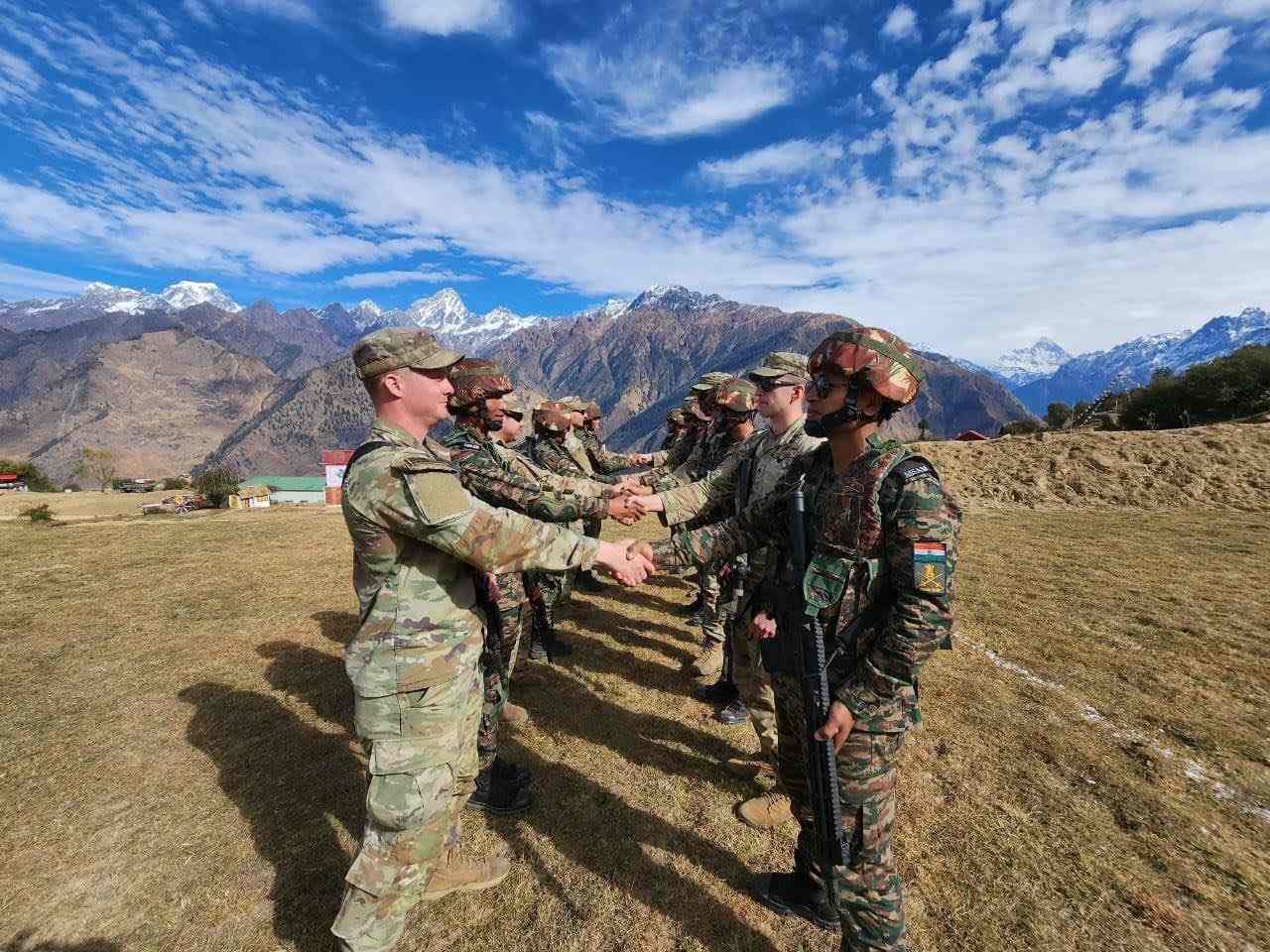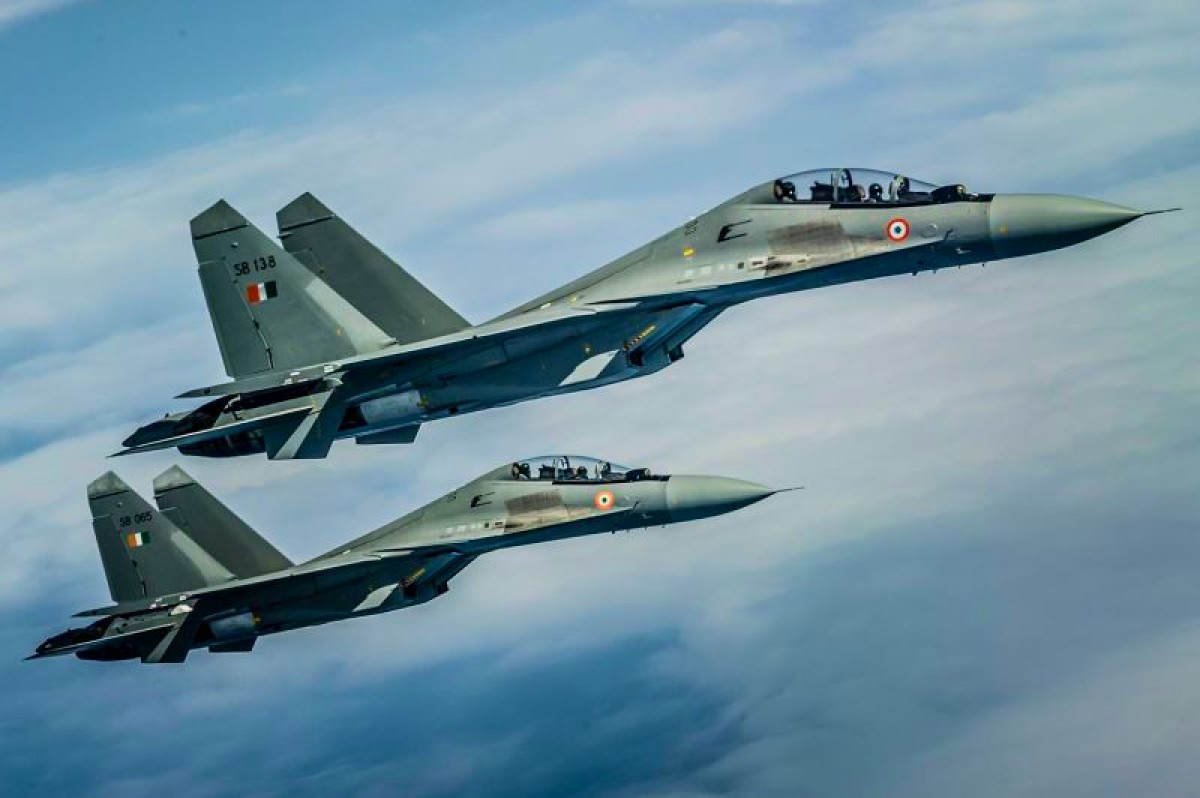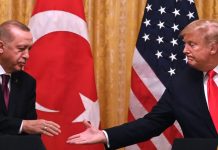Can a civilian like a generalist bureaucrat belonging to Indian Administrative Service (IAS) deliver better than a specialist, scientist/technocrat in furthering India’s Defence and Research Development?
This is the question many in India’s defense establishment are asking these days following the reports that the Narendra Modi government is considering relieving the Defence Research and Development (DRDO) chairman of additional responsibilities as Secretary (R&D) in the Defense Ministry to boost the premier defense research agency’s efficiency.
Scientists at the DRDO are aghast at such a prospect.
If the government’s reported move materializes, then it will be the second time that Prime Minister Modi will be changing the administrative structure of the DRDO, which has in its rolls 8,000 scientists and about 50 laboratories under its control with an annual budget of about Rs 20,000 crore.
In 2015, he separated the post of Scientific Advisor (SA) to the Defence Minister, which was combined with that of the Chairman of the DRDO and Secretary of R&D within the Ministry of Defence (DoD).
Till then, the Chairman of the DRDO combined all three posts. Now, even though he is the R&D Secretary of the Ministry, the DRDO head does not have a direct link to the Defence Minister, a privilege he had as the Scientific Advisor to the Minister.
Reportedly, the government’s move to bifurcate the posts of the DRDO head and the Administrative Head of the department as the Secretary is based on the impression that while defense scientists are experts in making technical decisions, they are not well-versed in financial and other administrative matters, resulting in project delays, one of the major drawbacks of the organization.
Therefore, a bureaucrat or IAS officer holding the post of secretary-R&D can manage administrative and financial tasks better than a scientist, thereby enhancing the productivity of the DRDO in a time-bound manner, so runs the argument of this school of thought.
In other words, the government’s move has reopened the debate on the generalist vs. specialist in the administration or management of the organizations at a time when the trend seems to favor the specialized and technical management of specialized and technical organizations. But the generalist–specialist debate remains a thorny issue in India, evidenced by this proposed move.
As a matter of fact, the Modi government has encouraged the intake of specialists or professionals in posts that were hitherto managed mostly by the IAS officers.

Over the last eight years under the Modi rule, the number of IAS officers serving in the central government has systematically shrunk. Though some have explained this to be due to the declining number of IAS officers recruited through the civil services examination in recent years, causing thereby a shortage, the fact, however, remains that the Indian Prime Minister has otherwise encouraged the professionals and specialists to assume administrative roles in various central ministries.
That being the case, scientists in the DRDO are surprised that the government is contemplating going back to the situation that prevailed in the DRDO until 1978.
“Incidentally, in between 1948, when the idea of DRDO was mooted (it was formed in 1958 by merging many science institutions, technically speaking) and 1978, the organization had not just one but two top bureaucrats at the helm of affairs in Secretary Defence Production and the defense Secretary”
In 1978, the then DRDO head was the distinguished scientist Raja Ramanna, and he had convinced Prime Minister Indira Gandhi to allow him to wear all three hats (DRDO Head, SA, and Secretary R&D) for the smooth functioning of the DRDO.
After all, Mrs. Gandhi was well aware of the caliber of Ramanna, particularly the role he played by secretly leading a team of scientists of the Bhabha Atomic Research Centre (BARC) to conduct India’s first nuclear test at Pokhran in Rajasthan on May 18, 1974.
These DRDO scientists also point out how two other comparable scientific entities in India – the Indian Space Research Organisation (ISRO) and the Indian Atomic Energy Commission (AEC) have scientists/technocrats as heads, rising through their hard work in their respective organizations.
S. Somanath, the ISRO head, is also the Secretary Department of Space, Government of India. Similarly, Kamlesh Nilkanth Vyas is the Chairman of the AEC and Secretary to the Department of Atomic Energy, Government of India.
Predictably, many observers of the Indian defense matters have tweeted against the government’s reported move with regard to the DRDO.
Saurav Jha, a well-known defense analyst tweets: “Bifurcating the post of Chairman @DRDO_India and Secretary DD&RD would be a most retrograde step and not an ‘innovation’ of any kind. There was a time when these two were separate, and it was ridiculous. There is no need to repeat that mistake again”.
The general impression is that by bifurcating the post of Chairman and Secretary DDR&D, the Government may end up adding another layer of bureaucracy again. “In past, even prominent scientists have been out of sync with the Defence R&D. Appointing bureaucrats will be far worse,” says a tweeter.
Ravi Kumar Gupta, a former senior DRDO Scientist, told this author that he is wondering how Modi, incidentally his favorite Prime Minister, is considering such a “bad” move.
“Are S&T or Def R&D departments in advanced countries like the US, the UK, and France headed by civilian bureaucrats?” He asks, pointing out how unlike distinguished scientists such as Prof Daulat Singh Kothari (Defence R&D Education), Dr. Homi Bhabha (nuclear energy), Dr. MS Swaminathan (Green Revolution, Dr. Kurian (White Revolution, Dr. Vikram Sarabhai (Space revolution) and Dr. Abdul Kalam (Missiles Aeronautics defense program) who have made the country proud, “IAS officers are synonymous with red-tapism and bottlenecks, leading to inordinate delays.”
But Gupta admits at the same time that despite DRDO’s best efforts, India, until recently, was the world’s largest importer of defense products and that there have been undue delays in completing its major projects. However, he explains why for such results, the DRDO has had some inherent limitations.

First, self-reliance in India’s defense sector is the indirect outcome of what he says is “import mania.” In the beginning, it was advised that a newly independent India should not spend time, money, and energy in making efforts towards developing weapons and military systems as she, as a Commonwealth country, could procure them easily from Great Britain.
Thus began, according to Gupta, the saga of perpetual imports, import-mania, and associated scams and scandals. Whether the Jeep scandal was the first one or not is purely of academic significance, especially in light of the fact that investigations in each and every scam have ended in “No one killed Jessica syndrome.”
Gupta seems to have a point when he points out that the policies and procedures related to defense procurements formulated by most Governments since independence were designed to promote imports rather than promoting self-reliance.
In tune with such policies, the Indian private sector industries, until recently, were considered unreliable and hence untouchable for manufacturing finished defense products. And this, ironically, has been the case even as nearly all of the defense products imported by India have been manufactured by the private sector companies of big arms-selling countries, with the arguable exception of Russia.
Secondly, budgetary allocations for DRDO since inception have remained pathetically low. The Defence R&D expenditure as a percentage of the GDP has not gone above even 0.1 percent.
If seen in terms of the percentage of the defense budget, it is not even 10 percent (about 6 percent), whereas the US and China are spending approximately 12 percent and 20 respectively, on Defence R&D of their respective defense budgets, which are much higher in value compared to that of India.
The low budgets seem to have a collateral impact on the DRDO retaining young talents, who, because of career promotion, prefer better avenues. In other words, the DRDO does not have enough talented scientists on its payroll.
Thirdly, DRDO has not enjoyed the autonomy it requires to excel because of the domination of civilian bureaucracy in the entire decision-making process in the Ministry of Defence, Gupta laments.
According to him, whereas the political leadership of successive governments since independence has been changing, bureaucracy is the only element with continuity dating back to pre-independence days.
“Still more interesting has been the fact that proverbially speaking, the ‘Ajar, ‘Amar, Avinashi’ bureaucracy seems to have always enjoyed the status of ‘the holiest cow’ with nil accountability for the successive scams for the pathetically poor levels of self-reliance or for slow production rates and suboptimal quality standards that have been the hallmark of the monopoly defense production agencies owned by the government and controlled through a complex setup headed by the bureaucracy.
“In such a bureaucratic ecosystem, any departures from precedence and set rules are an open invitation to trouble. R&D and innovation, by their very nature, are change agents and therefore do not have precedence. Archaic rules are known to be far from being conducive to the efficient and effective management of R&D, which actually need adaptable procedures.
The DRDO leadership and scientists, in the absence of autonomy along the lines of what was available to other S&T organizations in the country, had to keep wasting very significant amounts of their time, energy, and efforts in seeking even minor deviations from the precedence.
In many cases, the results after several years of struggle would involve choosing either the trunk or the tail instead of the elephant sought”, Gupta argues.
Given this background, the move to bring back an IAS officer back at the helm will further worsen the situation, Gupta warns. And he seems to have a point.
- Author and veteran journalist Prakash Nanda has been commenting on politics, foreign policy on strategic affairs for nearly three decades. A former National Fellow of the Indian Council for Historical Research and recipient of the Seoul Peace Prize Scholarship, he is also a Distinguished Fellow at the Institute of Peace and Conflict Studies.
- CONTACT: prakash.nanda (at) hotmail.com
- Follow EurAsian Times on Google News




